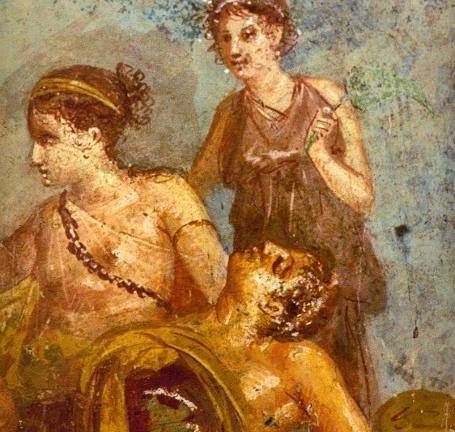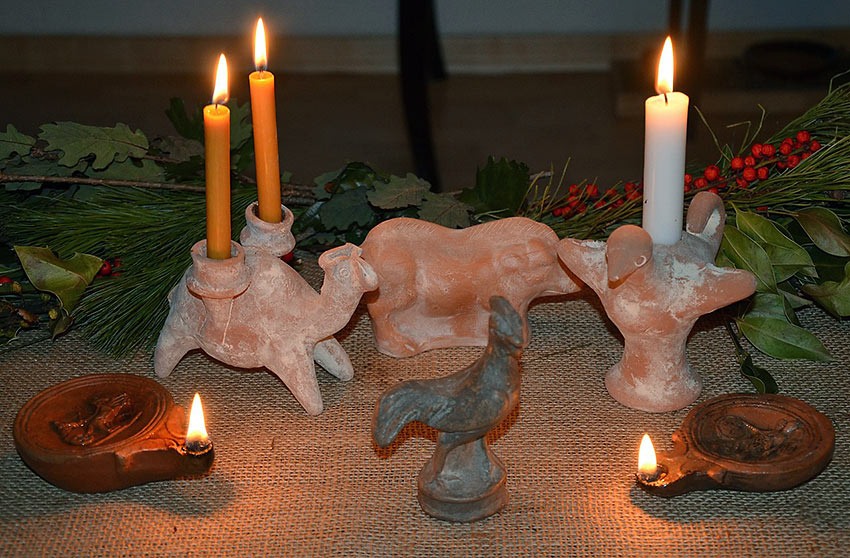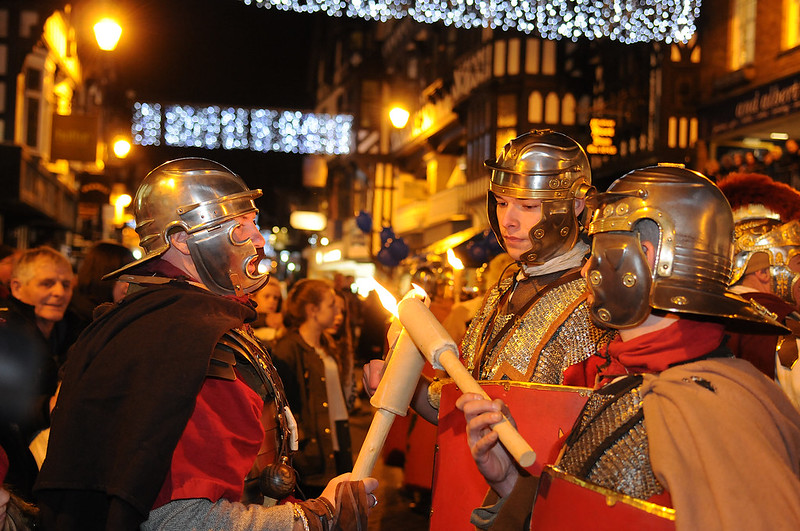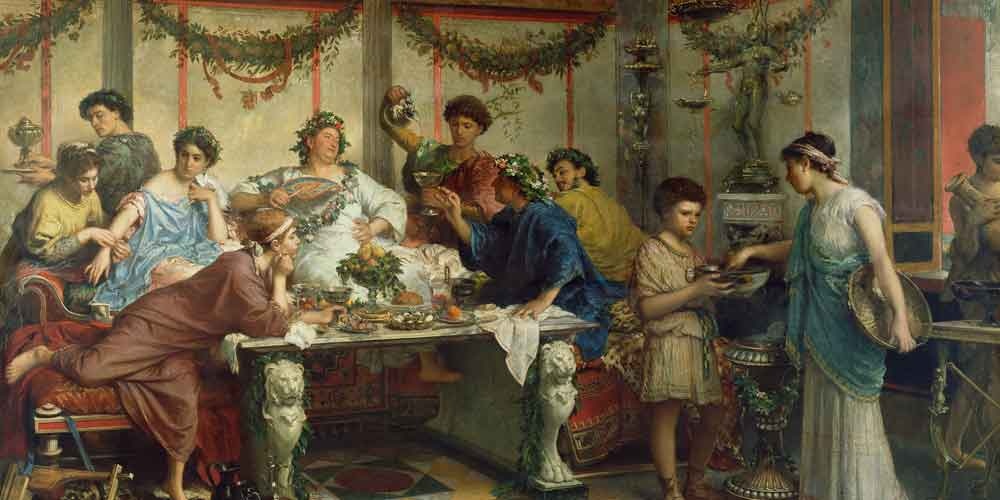
Saturnalia – origin of Christmas?
It is well known that Ancient Romans adored parties, and the Saturnalia was the biggest party of the year, marking the end of autumn and the beginning of winter.
God Saturn was the son of Uranus and Terra, a protector of Roman wealth (Roman treasury was in the temple dedicated to Saturn), prosperity, he who renewed the soil for more successful harvests, and agriculture in general, at later times Saturn was also a god of time. Some might compare him to the Greek god Cronus.
Early records show that the emperor Augustus allowed only two days of festivity with a starting date of December 17th however it became a huge celebration that would last for 7 days. The Roman state would halt all executions and do everything not to make warfare.

Saturnalia was not only praising the god Saturn, but it was also a time to be generous but festive. When we look at the stories written or spoken, it would remind us of Christmas in decorating the tree, gift exchanging, and helping the poor.
The records show that in the time of the emperor Domitian, who reigned from 81 to 96, there was a change of the Saturnalia because he tried to control the crowd. Emperor Domitian moved the date from 17th to 25th December and opened the celebration by organizing games for the public after public, traditional sacrifice before the Saturn temple. People would’ve seen his power by arriving at the Circus games where they were showered with sweets, fruits, and nuts before the female gladiators and dwarfs start their performances. After the games were done, Emperor would have a huge, extravagant banquet with entertainment and all.
The aristocracy would dress in their slave’s clothes and pay rent for unfortunate neighbors in trouble shouting “io Saturnalia;” they would swap with servants for a day, give gifts to their family members and even decorate trees. Also, no business was allowed. Drinking, being naked, clapping, dancing, and playing dice, all this was in a description made by the poet named Lucian of Samosata (AD 120-180).
 Some scholars claim that the Roman Emperor Aurelian (not Domitian) placed a pagan celebration of Saturnalia despite the growing Christian Church, who celebrated Christmas on the winter solstice date, on December 25 however there is no archaeological proof for that.
Some scholars claim that the Roman Emperor Aurelian (not Domitian) placed a pagan celebration of Saturnalia despite the growing Christian Church, who celebrated Christmas on the winter solstice date, on December 25 however there is no archaeological proof for that.
After all my detailed investigation on this matter, although Saturnalia has similar traditions in some parts, Christmas has more Judaic characteristics than the Saturnalia and therefore I cannot say that they are related at all.
It might be just a coincidence that both are related only by a winter solstice date which doesn’t mean they are the same.
In the next story, we will take you to the Circus Maximus, or the first circus in recorded history. Don’t miss out!
If you like this tale perhaps you may enjoy another

